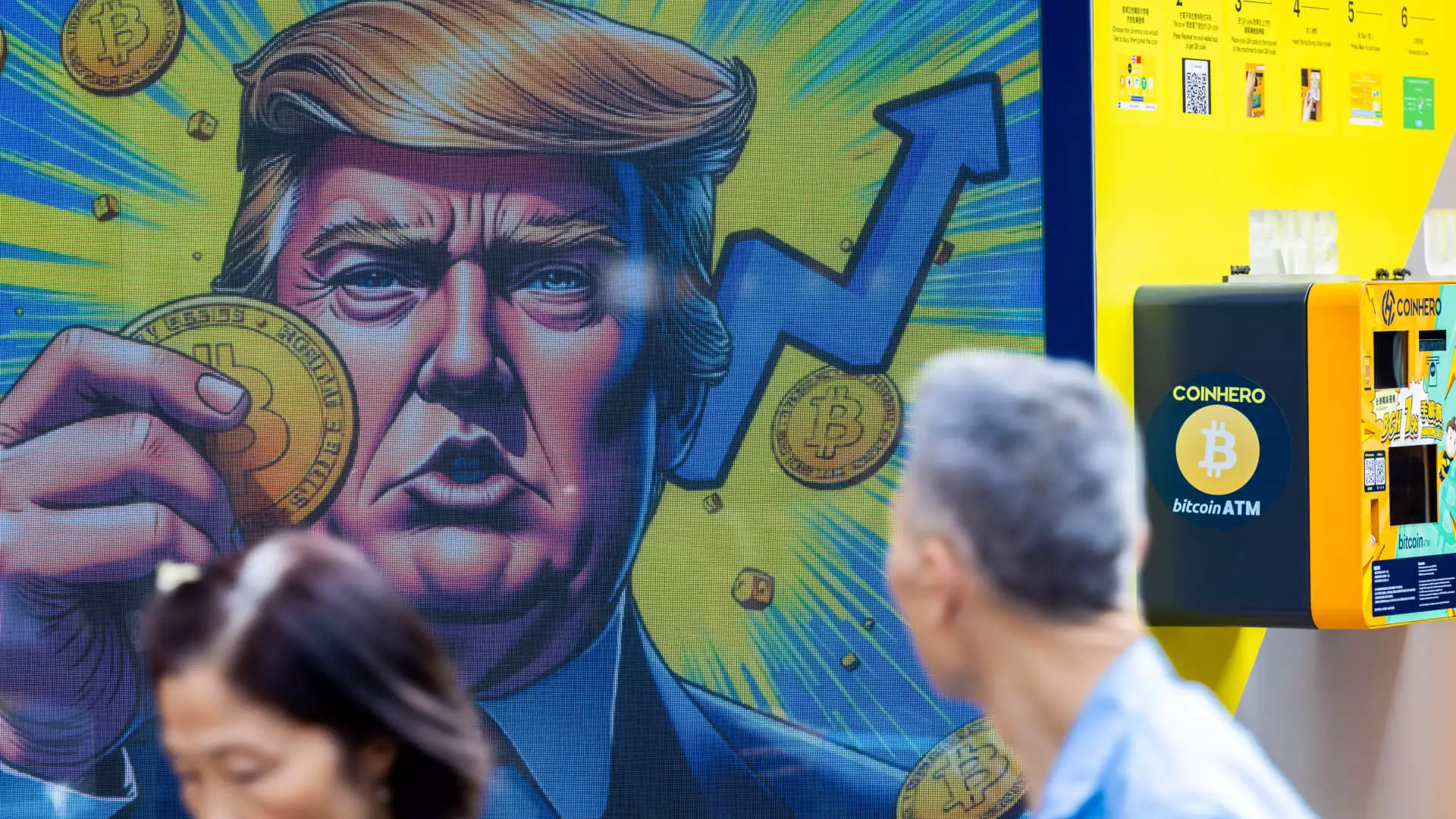In an era where digital assets have become a significant part of the financial landscape, the emergence of the $TRUMP cryptocurrency token illustrates the complex interplay between politics and evolving financial technologies. Recent reports reveal that President Donald Trump, alongside his affiliates, has amassed nearly $900,000 in trading fees within two days of a promotional event centered around this memecoin. The announcement that the top 220 holders would receive an exclusive dinner invitation with President Trump sparked a flurry of activity, catapulting the token’s price by over 50% and boosting its market capitalization to an astounding $2.7 billion.
What does this surge in value signify? For many, it’s a prime example of how cryptocurrency can be influenced by social factors, especially when intertwined with political power. The idea that individuals can dine with a sitting president for holding a specific digital token raises significant ethical questions about the commodification of political access. Accordingly, this event serves as a case study of how enticing promotional tactics can drive speculative trading in the crypto market.
Criticism and Political Backlash
The meteoric rise of the $TRUMP token did not go unnoticed by critics. Prominent figures in the political arena have vocalized their disapproval, asserting that this initiative represents the apex of ethical breaches by a sitting president. Sen. Chris Murphy, a vocal adversary of Trump, took to social media, labeling the event as “the most brazenly corrupt thing a President has ever done.” Such proclamations underscore a growing concern regarding the potential for public officials to leverage their positions for personal gain.
The ethical implications are profound and multifaceted. Critics argue that this signifies a blatant attempt to monetize proximity to power in a manner that blurs the lines between personal enrichment and civic duty. The controversy did not just end there; Democratic Senators Adam Schiff and Elizabeth Warren are calling for inquiries from the U.S. Office of Government Ethics into whether this venture boils down to “pay to play” corruption. The looming question remains: how far can political boundaries stretch in the face of financial gain?
Understanding Memecoins and Market Dynamics
Memecoins are a category of cryptocurrencies that have found their way to mainstream consciousness largely through internet culture. They derive their value from viral memes and social media hype, often lacking any underlying product or service. The $TRUMP token epitomizes this new age of decentralized digital assets, where value is assigned not by traditional metrics but by brand recognition and cultural phenomena. Interestingly, reports have revealed that around 80% of the $TRUMP token’s supply is controlled by the Trump Organization and its affiliates, implicating a significant concentration of power within a select few.
Despite some protective measures, such as a vesting schedule designed to prevent “rug pulls,” the centralization of token supply raises eyebrows. Such mechanisms are intended to ensure that early holders cannot immediately cash out, yet they simultaneously protect insiders. This conflicting dynamic creates an environment ripe for speculation, in which retail investors may unknowingly support a project designed to benefit a select group rather than the broader community.
The Ethical Dilemma of Financial Interests in Politics
The conversation surrounding the $TRUMP token inevitably leads to a broader discussion on the ethics of financial interests held by politicians. Delaney Marsco from the Campaign Legal Center highlights the unprecedented nature of this situation, where, unlike previous norms adhered to by modern presidents, Trump is not legally required to divest from his businesses or financial interests. This “loophole” allows for activities that have a seemingly corrupt appearance, fostering a narrative where access to the president can be financially incentivized.
Critics like Marsco express concern that this flexibility creates an environment conducive to questionable practices that erode public trust. As long as these ethical gaps exist, there remains a significant risk that politicians could exploit the crypto market to further enrich themselves while serving in office.
A Community of Speculators and Silent Investors
The leaderboard displayed on the $TRUMP token’s website showcases the top holders by their screen names, obscuring the identities of those who may be using this opportunity for personal gain or political influence. This opacity is telling; it invites speculation on the motives behind these investments and who stands to benefit the most. Reports have emerged indicating ties of some top investors to foreign exchanges or crypto platforms banned in the U.S., adding another layer of complexity to the conversation surrounding transparency in both the political and financial realms.
As Trump shifts from opposition to a champion of cryptocurrency, it seems that the blending of political ambition and crypto speculation will remain a contentious issue. It raises questions not only about the future of political ethics in the digital age but also about how emerging technologies will redefine financial landscapes and power structures for years to come.

